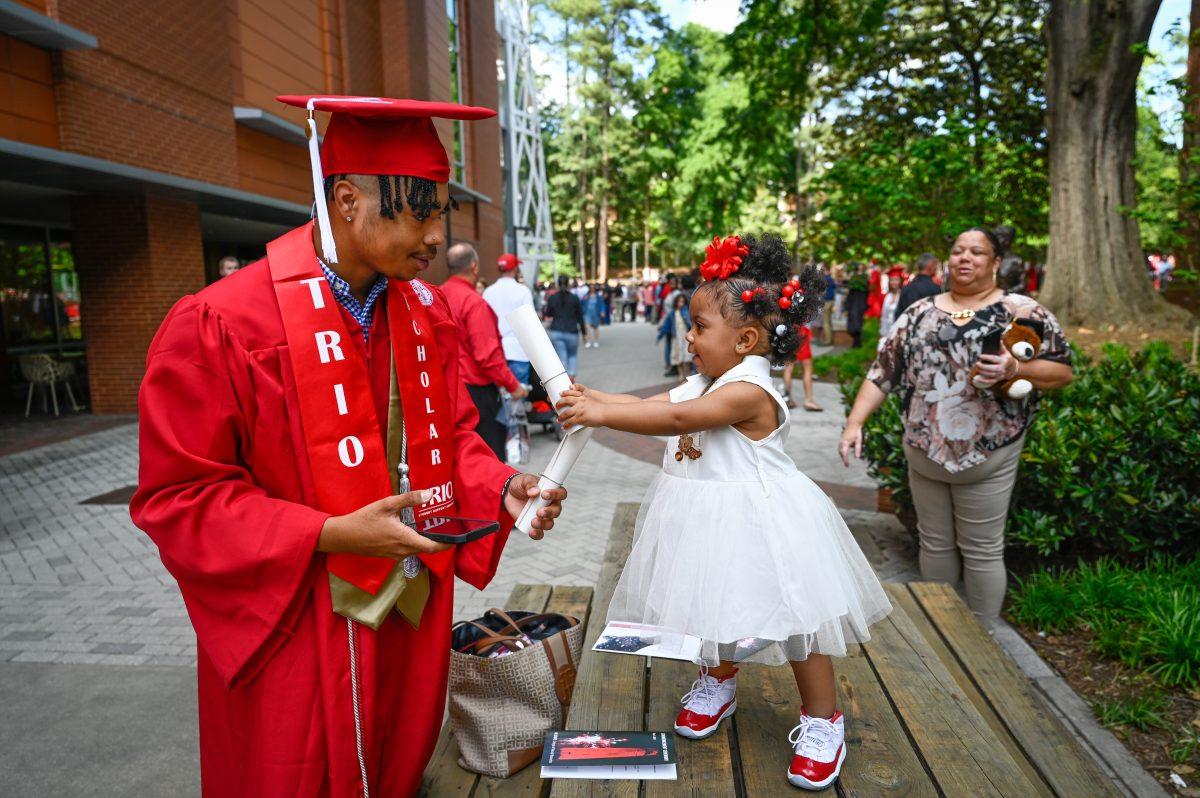While the definition of a first-generation student might appear straightforward on paper, there’s a lot to the experience of being the first in your family to go to college that is often overlooked.
For first-generation students at NC State, the college goes beyond education; it also involves breaking the cycle, bringing pride to family, taking the risk of navigating an unknown environment and showing other first-generation students that it’s possible to make it this far.
Nolan Parrish, a fourth-year studying electrical engineering, said in a survey Technician shared on social media that being the first to go to college means making his family proud.
“It means so much to me to be first-gen,” Parrish wrote in the survey response. “I have a sense of pride that I am furthering my academic success to levels never seen before in my family. I hope to continue along my path and continue making everybody back home proud.”
But with pride comes a lot of pressure.
“I feel like my parents and grandparents do a really good job of, you know, every time I come home, or anytime I see them, you know, they’re always proud of me,” Parrish said in an interview. “But yeah, I guess that comes with pressure … because you know, it is kind of uncharted territory, I guess, for my family. I’m the first one to be doing this.”
While parents show pride for their children, it is ultimately an unknown territory for them.
“I sometimes wonder like, you know, they don’t really get it like, you know, they didn’t go to college; they don’t know exactly what it’s like,” Parrish said.
For Ashley Perez, a fourth-year studying sustainable materials and technology, being a first-generation college student means paving the way for her siblings while also accomplishing a goal that her parents never could.
“For me college was a new chapter, a new world to navigate,” Perez said. “And it’s fulfilling because I’m the first to do it … and nerve wracking because I’m setting the example for my siblings, and I just want the best for them.”
Both of Perez’s parents immigrated to the United States from Mexico at 18, and Perez grew up seeing them struggle without papers or education — making her realize the value of higher-education from a young age.
“Just growing up, I think immigrant parents enforce that education is the most valuable asset that you can have,” Perez said. “Money is temporary, careers come and go, but an education is forever and I think that’s what’s motivated me to stay through school.”
Being the oldest of four, Perez also said she wants to be a support system for her siblings, providing them with the assistance she was never able to get.
“Not only am I doing this for my parents, I’m also doing it for my siblings,” Perez said. “When my younger siblings, if they decide to, go to college, they can ask me for those resources, or just emotional support that I didn’t have during the application and actual academic process of being in college. I’m just paving the way for my siblings.”
Being a first-generation student entails many challenges that begin in the application process and continue throughout college.
“I felt like everyone around me who had parents who went to college just kind of thought of it as common knowledge,” Parrish said. “They all have a really good understanding or just an understanding at all of what’s going on. … And so, it all just kind of is news to me. I’m like, I didn’t grow up hearing this, or I didn’t really have that, you know.”
Parrish said the significance of being the first person to enroll in college, however, outweighs the difficulties for many, as it serves as inspiration for students to pursue higher education.
“I do feel extremely proud to be first-gen,” Parrish said. “It’s definitely something I consider a good part of my identity. I take pride in it. I’m happy for this opportunity, [and] I have to, you know, push myself along a little more.”








